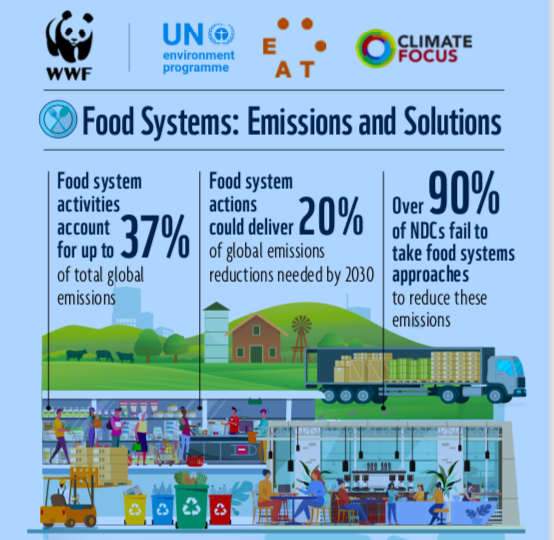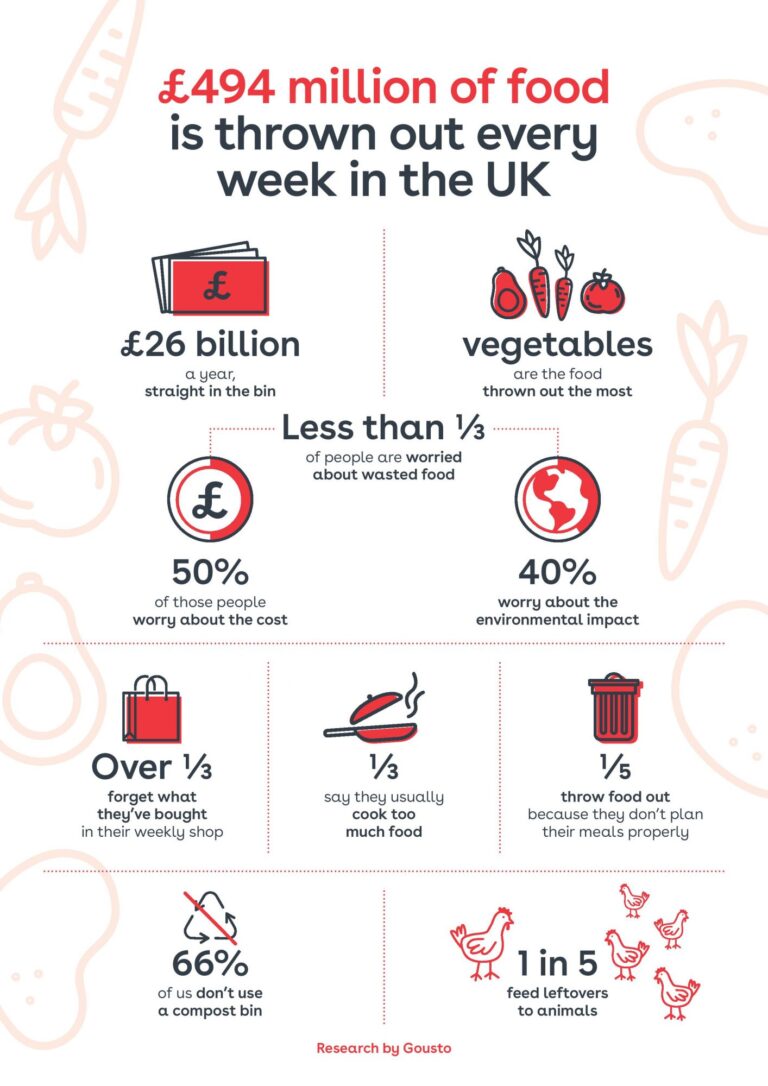
We all know that a great way to reduce our carbon footprint is by cutting down on the amount of meat we eat, but what about our fruit and veg?
While animal farming is responsible for 14.5% of greenhouse gas emissions globally, where your food comes from and how it gets to you can be almost as important as what it is.
Food transportation to and within the U.K. alone produces 19 million tonnes of CO2 every year, according to estimates from the Department for Environment, Food & Rural Affairs.
That’s the equivalent of around 5.5 million cars.
High-value, perishable goods, such as out-of-season berries, for example, also have to be flown in. This creates 10 times the amount of carbon emissions as road travel and 50 times that of shipping.
Because of this, they account for 11% of the U.K.’s total food transport emissions.
Another factor to consider when stocking up on your five a day is whether they are grown under sustainable farming practices.
In many places, aid-reliant communities are often forced by economic necessity to over-farm their land, destroying the soil underneath, or to use an excess of toxic and harmful agricultural chemicals.

Unsustainable farming practices are not just bad for the environment, they are also responsible for part of the 14% of food that gets wasted between harvest and retail.
We’ve talked a bit before about food waste and how it is not just a humanitarian issue, but also an environmental one.
Around 17% of the world’s total food production ends up being wasted, and a target of UN Sustainable Development Goal 12, responsible consumption and production, is to half that number by 2030.
According to the most recent report by the charity Waste and Resources Action Programme, the U.K. alone produced around 9.5 million tonnes of food waste in 2018, only 30% of which was inedible.
Thankfully, these numbers are going down with the U.K. reducing out total food waste by 15% between 2007 and 2018.
If we stay on our current trajectory, we will meet the UN’s Sustainable Development Goal target.
A large part of this reduction has even come from individuals and households. The Covid-19 lockdown has also seemed to make people more aware of the waste they are producing, driving down those numbers further.
However, it’s not just household waste that’s the issue. Manufacturers, food services, and the hospitality sector are still responsible for 18% of the U.K.’s total food waste.
Some of the reasons for this include restaurants throwing out uneaten food, or supermarkets getting rid of products past their sell-by-date.
Many supermarkets even refuse to sell fruit and vegetables if they don’t look good enough, meaning those that are too large or misshapen, but otherwise completely edible, just get thrown away.

Of course, there are some simple ways for you to make the food you eat as sustainable as possible, even your greens.
One easy step you can immediately take is to start paying attention to the packaging on your food.
Labels such as Leaf or the Rainforest Alliance can show that the food you’re buying, or its ingredients, were grown and harvested using sustainable farming methods.
The packaging can also tell you exactly where your food is coming from.
Making an effort to only eat locally-produced, in-season fruit and vegetables, for example, can help to reduce your carbon footprint by cutting out a lot of the greenhouse gases that would otherwise be produced during its transportation.
There are even some fun ways to start doing this.
Try visiting your local farmers market or, if you’re feeling particularly adventurous, start growing some produce of your own.
Remember, even small things such as planning how to eat your leftovers or keeping food past its sell-by-date can decrease food waste and reduce your impact on the environment.
One service that makes it easy to shop produce sustainably, and one that we love personally here at Play it Green, is Oddbox’s fruit and vegetable deliveries.
Oddbox believe that no food, even if it’s deemed too odd, too ugly, or too small, should be wasted, nor should the water, energy, and time that goes into growing it.
They work with farmers in the U.K to deliver produce that would otherwise be thrown away right to your front door.
If you want to take your next step to becoming more sustainable, head over to Oddbox’s website and take a look at their selection of customisable boxes.
Special Offer: To save you some money, you can even use the discount code ODDVEG at the checkout to get 50% off your first order.

‘Having spent a number of years working on sustainability within the hospitality industry, food waste is something that I have seen first hand. Whilst people go hungry around the world, food waste is something we should all be trying to address.
Food and its production and transportation are inherently linked to our personal footprint and we can all take simple step such as buying locally and seasonally to reduce our impact.’
Richard, Co-founder, Play it Green





